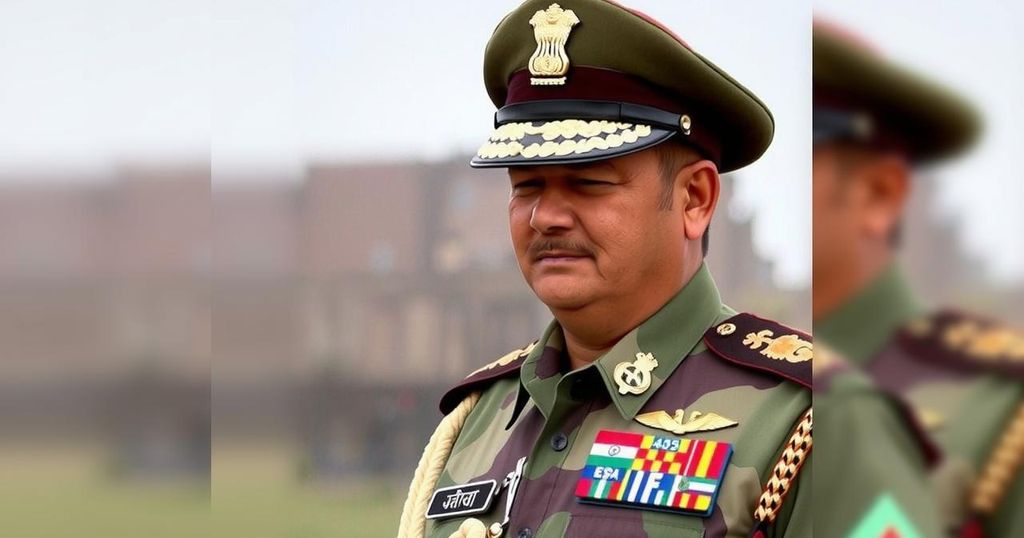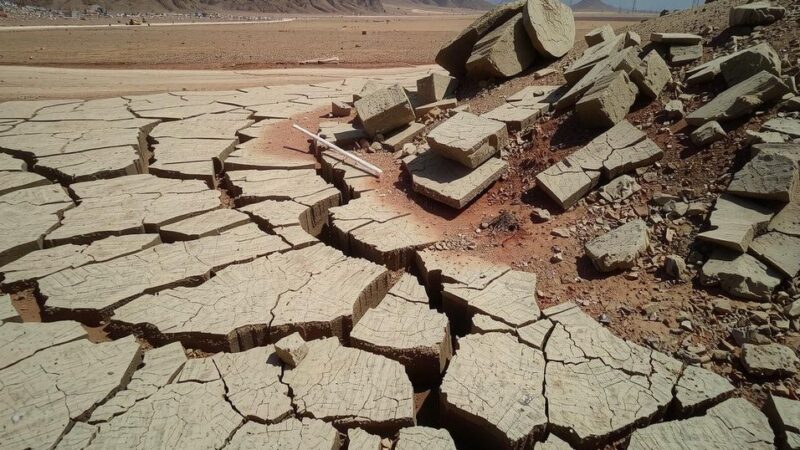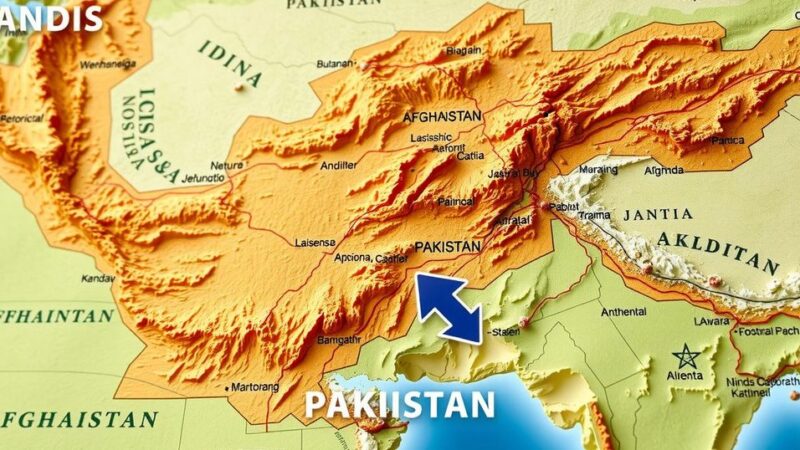Army Chief General Upendra Dwivedi described the India-China border situation as “stable but sensitive,” ruling out the existence of buffer zones along the LAC. After disengagement in October 2022, he emphasized the importance of building trust between nations and the need for continued dialogue to manage tensions effectively.
General Upendra Dwivedi, the Army Chief of India, recently characterized the situation along the India-China border as “stable but sensitive,” during his annual Army Day press conference. He emphasized the absence of buffer zones along the Line of Actual Control (LAC), despite the recent disengagement completed in October 2022 at Depsang and Demchok in eastern Ladakh. His comments follow a series of discussions aimed at maintaining order in the region. According to General Dwivedi, visitations to mutually agreed grazing grounds have been established, signifying a level of cooperation between the involved parties.
General Dwivedi clarified that while temporary moratoriums were put in place for certain areas to avert high levels of tension and potential violence, no formal buffer zones exist. He stated, “Where you feel that the nature or the degree of violence can be high and the fuse is short, you create some distance.” He further reiterated the need for a developed trust framework between the two countries, remarking that as of April 20, a reassessment of this trust is necessary moving forward. The Indian Army is looking towards upcoming meetings with their Chinese counterparts as they strive for a more peaceful engagement along the contentious border.
The India-China border has long been a point of contention, primarily due to historical territorial disputes. In recent years, clashes have intensified, especially after a significant military standoff that commenced in May 2020, which saw both nations deploying extensive troops along the LAC. The disengagement process in October 2022 marked a moment of hope for easing tensions, yet discussions regarding buffer zones and border management remain critical topics. General Dwivedi’s comments highlight the balancing act between maintaining security and fostering diplomatic relations amidst ongoing disputes.
In conclusion, General Upendra Dwivedi’s statements regarding the current India-China border situation underscore the ongoing need for vigilance and trust-building measures between the two nations. His assertion that no formal buffer zones exist indicates a commitment to direct engagement rather than separation. The recent disengagement at key points reflects progress, but the necessity for further discussions suggests ongoing complexities in achieving lasting peace.
Original Source: www.hindustantimes.com







